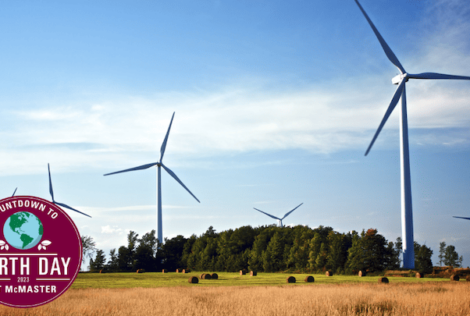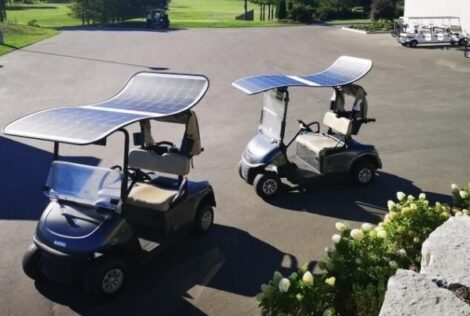
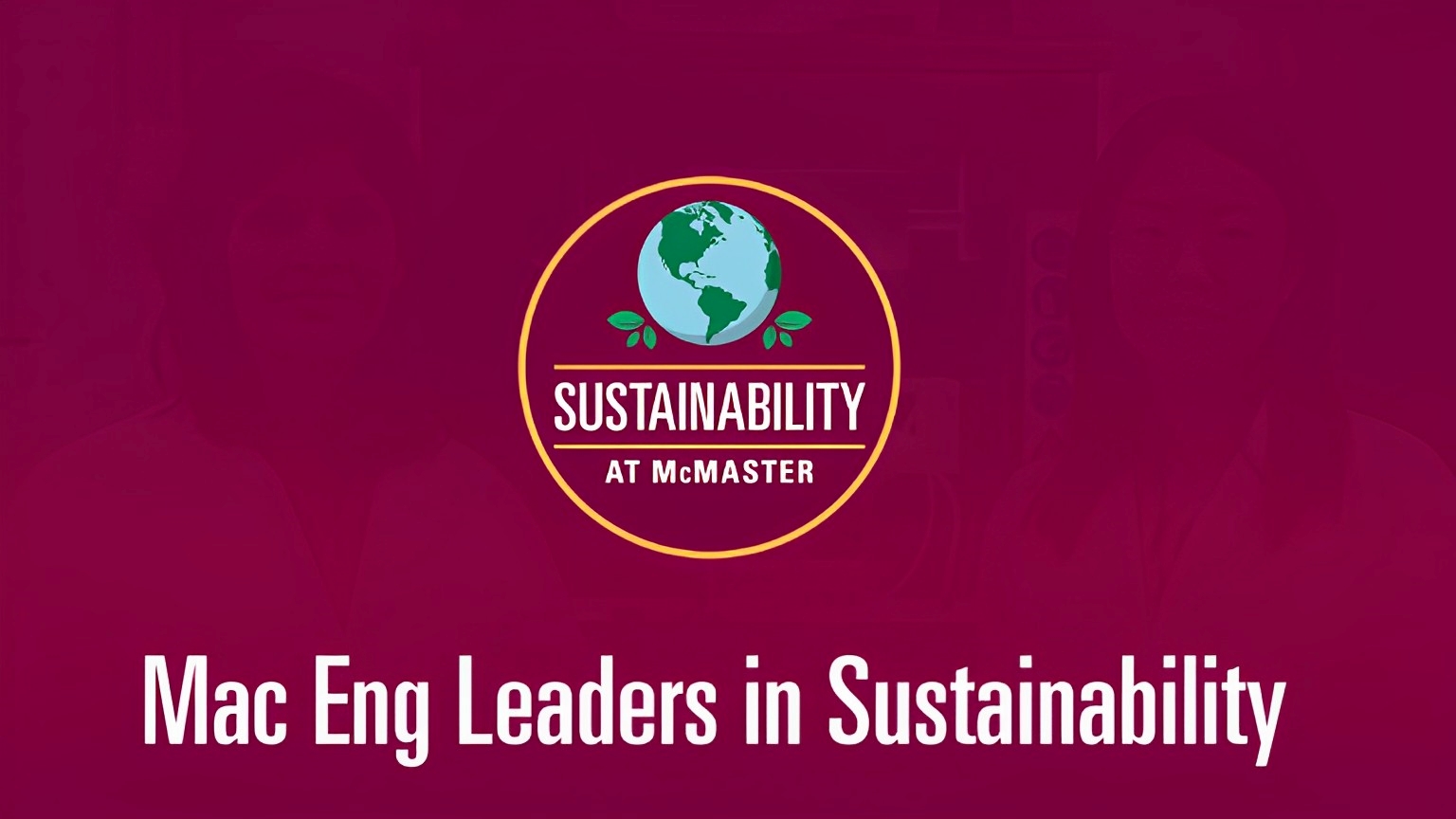
On Earth Day we are recognizing the Mac Eng faculty, alumni and students who are at at the forefront of creating the positive changes our planet needs.
From developing renewable energy solutions, to electrifying transportation, to creating more accurate climate change models, here is a look at our top sustainability stories:
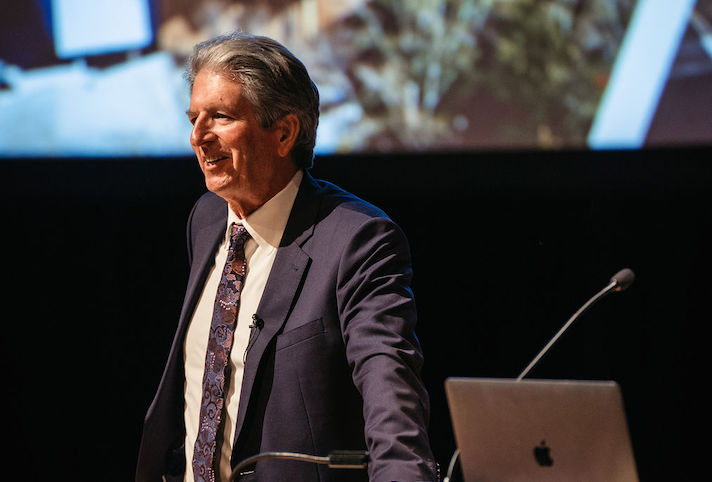
This week, Mac grad Martin Green, ‘74, joined us on campus to speak about the creation of new solar cells that revolutionized the solar technology industry, a discovery he made while pursuing his PhD at McMaster Engineering. His success in the renewable energy field earned this record-holder a Millennium Technology Prize.
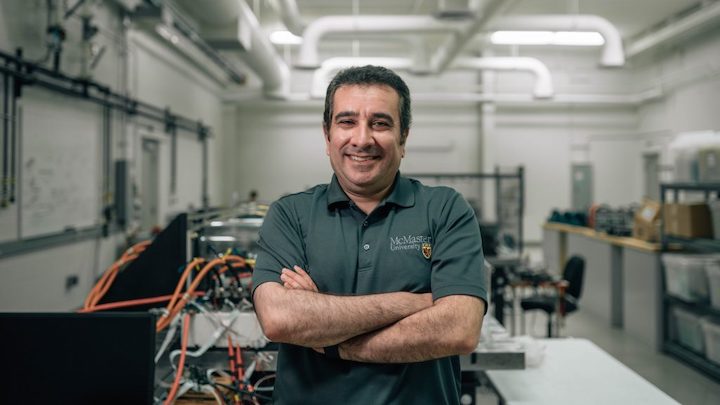
McMaster researcher Ali Emadi, a global expert on vehicle electrification and smart mobility, is determined to build a more inclusive transportation system that is safer, more equitable, more reliable and more sustainable.
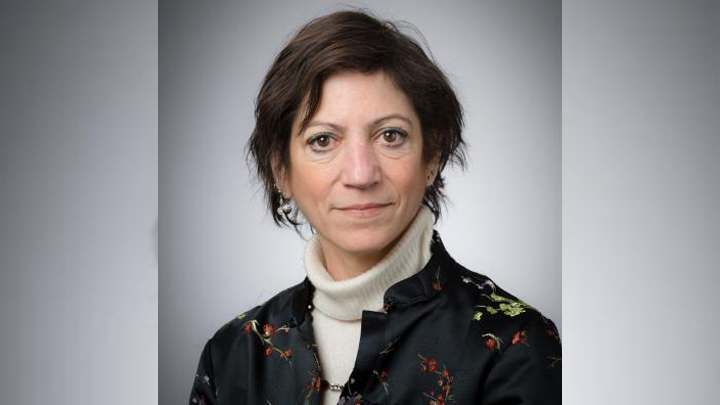
A McMaster study co-authored by Gail Krantzberg, professor in the W Booth School of Engineering Practice and Technology, says Ontario is ill-prepared for the Great Lakes region to become a migration magnet as climate change intensifies.
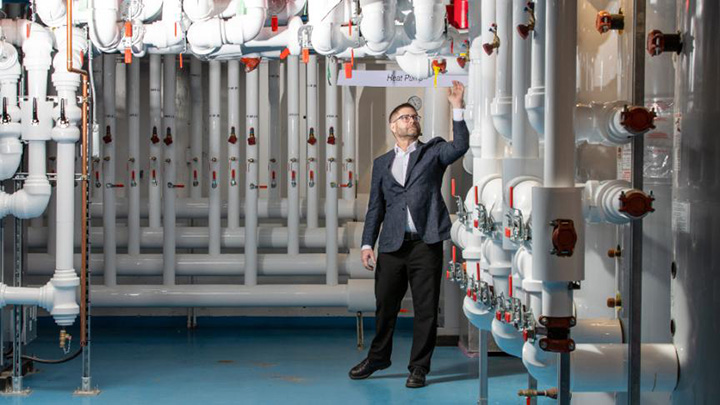
Engineering Professor, Jim Cotton, an expert on sustainable energy, answers questions about McMaster’s plans to achieve net zero carbon emissions on campus.
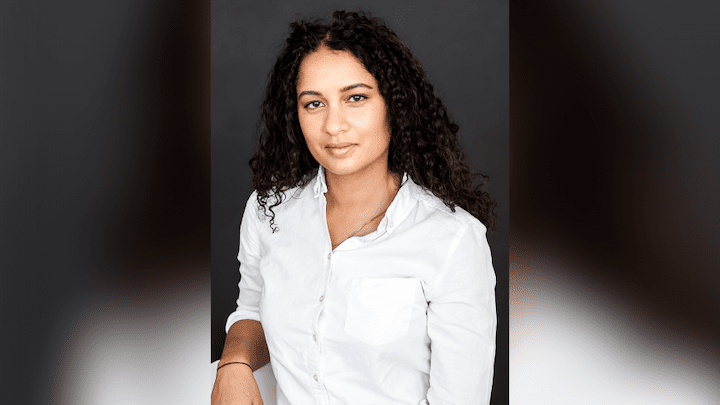
From energy equity and clean hydrogen to creating and buying sustainable garments, Mechanical Engineering Professor Keena Trowell is doing her part to combat climate change.
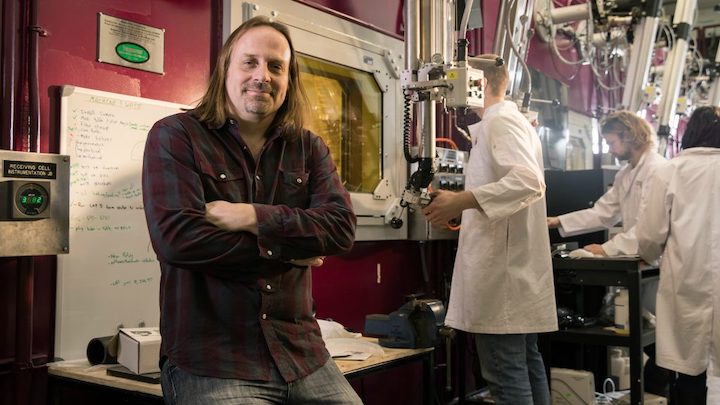
New innovations in nuclear technology could help address long-held safety concerns about the divisive carbon-free energy, says David Novog, a professor in engineering physics.
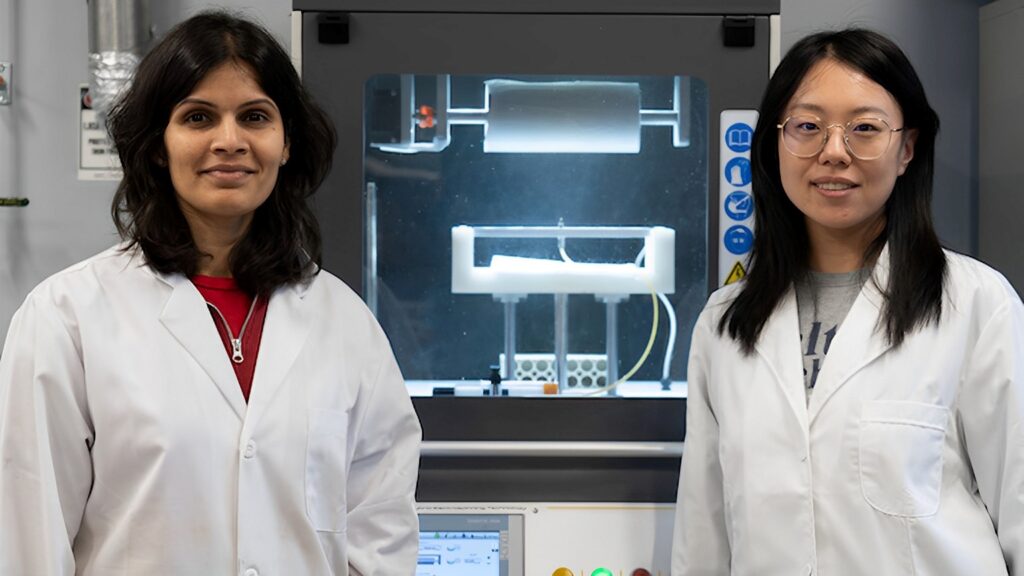
A biodegradable mask that can comfortably protect its wearer without harming the environment is one step closer to reality, thanks to post-doctoral research fellow Sneha Shanbhag and PhD candidate Rong Wu at McMaster’s Centre of Excellence in Protective Equipment and Materials (CEPEM).
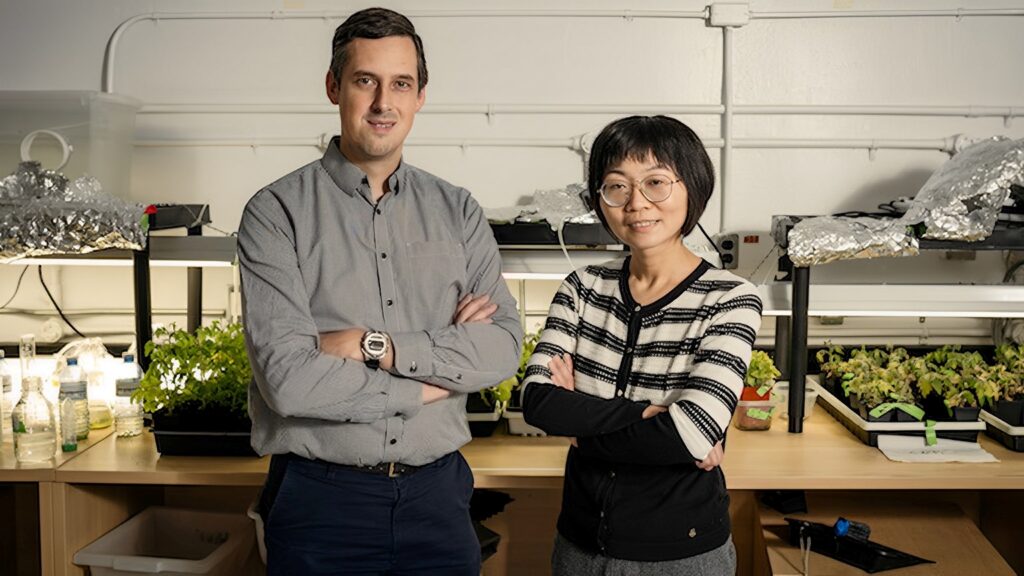
In partnership with energy company Suncor, our chemical engineering professor and researcher Todd Hoare has developed a soft chemical spray that will revolutionize the agriculture industry by protecting Canadian crops from harmful bacteria and infestation.
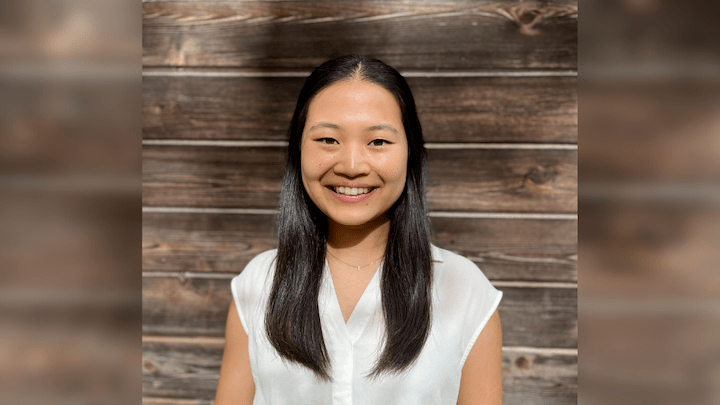
Paris Liu, a fourth-year engineering student and the co-president of Zero Waste McMaster, visited Egypt for the United Nations’ annual global climate summit.
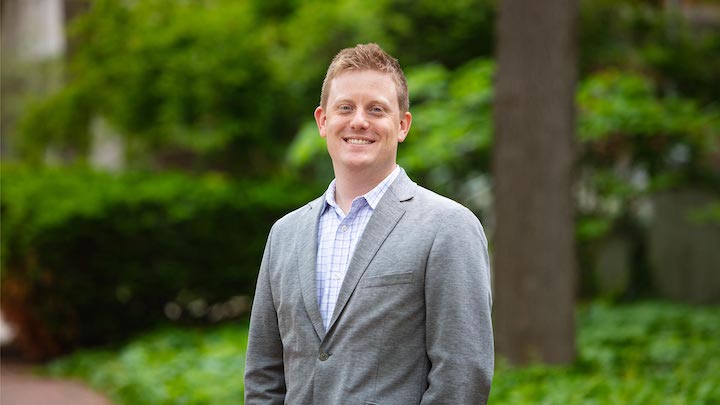
McMaster researcher Andrew Gadsden and his team of experts have worked with NASA to build an autonomous, robotic telescope mount to help create more accurate climate change models.
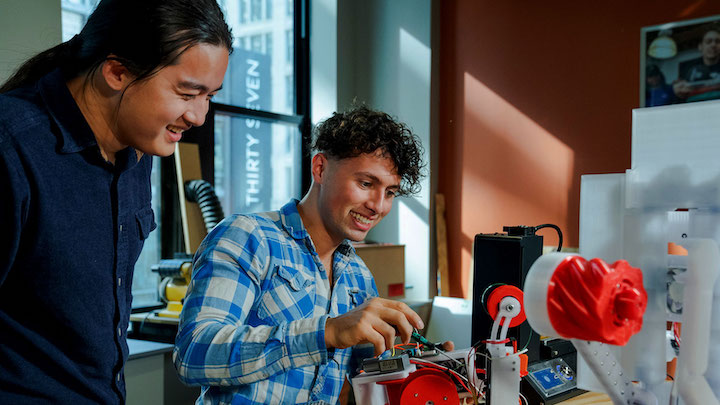
Mechanical Engineering graduate Swaleh Owais, right, and business partner Yang Cheng’s invention, Polyformer, recycles plastic bottles into precious 3D printer filament.
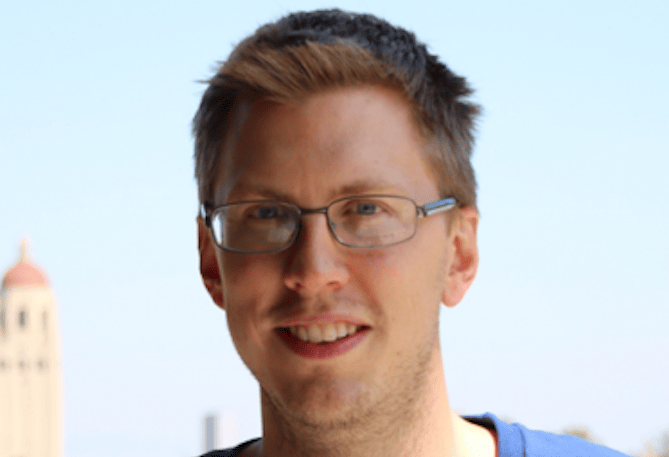
Engineering Professor Drew Higgins is among team of researchers that are partnering with the National Research Council Canada (NRC) to make Canada’s energy economy more sustainable for generations to come.
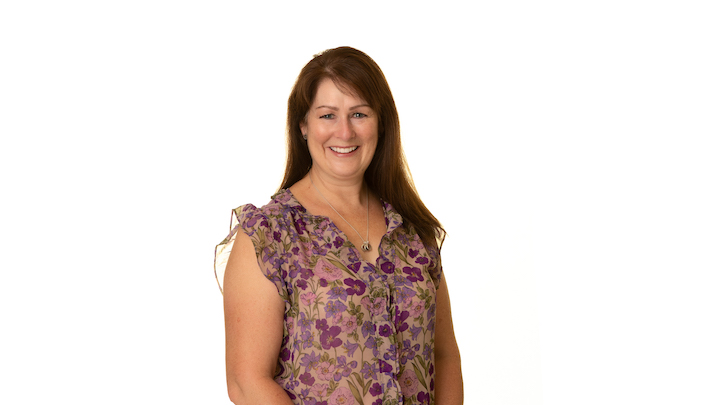
Organic filters composed of sand coated with a living layer of microbiological material can effectively remove ash and other dissolved organic matter from drinking water after wildfires, according to new research co-authored by Sarah Dickson-Anderson, Acting Associate Dean and a professor of civil engineering at McMaster Engineering.
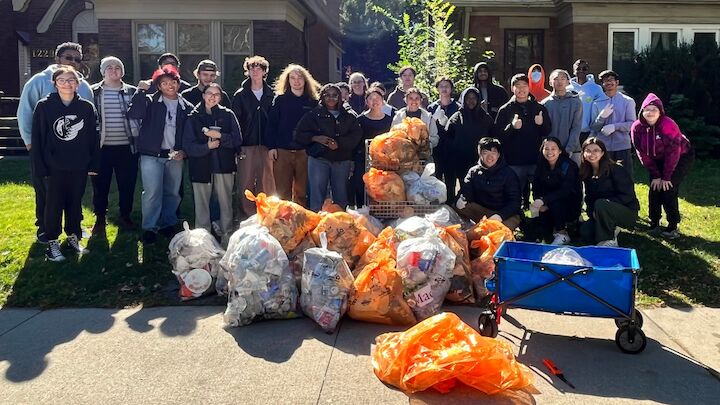
Thanks to the student club Zero Waste McMaster, you can join a cleanup campaign, use a search engine that funds tree planting, learn to grow your own food, and use a discount program that makes sustainable shopping more affordable.

